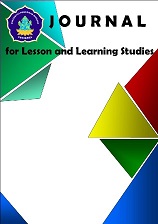Evaluating the Impact of the DECIDE Model on Decision-Making Skills in Elementary Teacher Education Students in Indonesia
DOI:
https://doi.org/10.23887/jlls.v7i3.84231Kata Kunci:
Decision-Making Skills, Elementary Teacher, Case StudyAbstrak
The low level of decision-making skills among students poses a significant challenge in elementary teacher education programs. This study aims to evaluate decision-making skills using the DECIDE model among elementary teacher education students in Indonesia. The research employed a qualitative method with a case study design. The participants consisted of 70 students selected through purposive sampling. Data were collected using open-ended essay tests and non-test techniques, including participant observation and in-depth interviews. Data analysis was conducted through the stages of data collection, data presentation, and conclusion drawing. The results indicated that students' decision-making skills could be evaluated through the six stages of the DECIDE model: Define the Problem, demonstrated by the ability to define the problem and identify the main aspects requiring resolution; Establish the Criteria, reflected in the ability to establish relevant and objective criteria for evaluating potential solutions; Consider all the Alternatives, shown by the ability to assess all alternatives along with their advantages and disadvantages; Identify the Best Alternative, characterized by the ability to identify the best alternative based on the established criteria; Develop and Implement a Plan of Action, shown through the development of a structured action plan; and Evaluate and Monitor the Solution, demonstrated by continuous evaluation of the implemented solution. This study concluded that elementary teacher education students in Indonesia exhibit good decision-making skills based on the DECIDE model.
Diterbitkan
Cara Mengutip
Terbitan
Bagian
Lisensi
Hak Cipta (c) 2024 Moh Salimi, Ratna Hidayah, Suhartono Suhartono, Tri Saptuti Susiani, Wahyono Wahyono, Achmad Basari Eko Wahyudi, Laksmi Evasufi Widi Fajari

Artikel ini berlisensiCreative Commons Attribution-ShareAlike 4.0 International License.
Authors who publish with the Journal for Lesson and Learning Studies agree to the following terms:
- Authors retain copyright and grant the journal the right of first publication with the work simultaneously licensed under a Creative Commons Attribution License (CC BY-SA 4.0) that allows others to share the work with an acknowledgment of the work's authorship and initial publication in this journal.
- Authors are able to enter into separate, additional contractual arrangements for the non-exclusive distribution of the journal's published version of the work (e.g., post it to an institutional repository or publish it in a book), with an acknowledgment of its initial publication in this journal.
- Authors are permitted and encouraged to post their work online (e.g., in institutional repositories or on their website) prior to and during the submission process, as it can lead to productive exchanges, as well as earlier and greater citation of published work. (See The Effect of Open Access)




